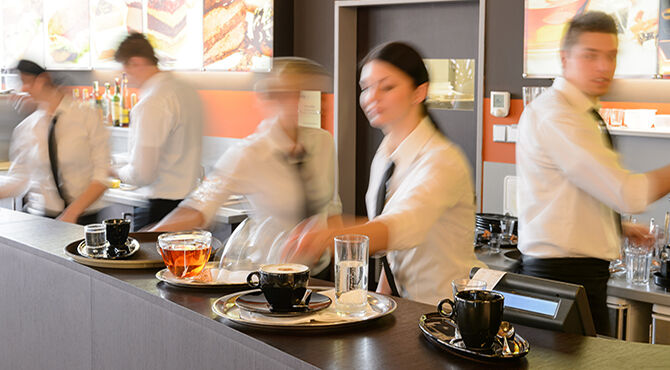Hospitality industry fears staff shortages after Brexit
The UK’s hospitality sector could face annual staff shortages of 60,000 if stringent migration curbs on EU workers were to be imposed after Brexit, a report on Friday warned.

Hospitality and tourism face recruitment problems
Ufi Ibrahim, head of the BHA, is seeking a meeting with the Department of Culture, Media and Sport to discuss the report’s findings. “It is clear from the KPMG report that hospitality and tourism face major problems in recruitment if there is any major cut in the number of workers allowed to enter from the EU,” she said.“We want to avoid there being any cliff edge but the government must be aware that in the medium to long term, we will still need considerable numbers of EU workers, who have contributed so much to our industry and the UK economy in general.“We have submitted our strategy to Number 10 Downing Street because we are aware of our responsibility to encourage more UK nationals to see the career opportunities available in hospitality and tourism.“We do need the government to play their part too, by recognising our employment needs and recognising how important this industry, the fourth largest, is to the country. We also look forward to working with the Department for Work and Pensions and Department for Education to implement our strategy as well as the Business Department.”Related news:
- CIPD offers advice for firms preparing for Brexit
- Plunge in number of EU citizens seeking work in Britain
- UK employers fear EU talent pool is being drained
High proportions of EU workers
The KPMG report says that 75 per cent of waiting staff in the UK, 37 per cent of house-keeping staff and a quarter of all chefs originate from elsewhere in the EU. “The labour shortfall ten years after Brexit would be one million if EU migration fell to zero from 2019,” KPMG wrote.Last month, the sandwich and coffee chain Pret A Manger revealed that only one in 50 of its applicants was British and that 65 per cent of its current workforce comprised EU nationals from outside the UK.The BHA said, “The research for this report focuses on hospitality where currently three million people are employed. The BHA also represents tourism and estimates that there are 4.5 million workers employed across hospitality and tourism as a whole, the fourth largest industry in the UK contributing 10 per cent of GDP. The report points out that when taking both hospitality and tourism together, the recruitment gap would be even greater.”However, the industry faces a problem in that one of the main reasons for the ‘leave’ vote in last June’s referendum was a desire by many Britons to curb immigration. The government has previously said it wants to reduce annual net migration to below 100,000, although ministers appear to have been edging away from this commitment recently.One idea being floated by the civil service is for a post-Brexit visa system that would give priority to low-skilled workers from the EU, not only to help the hospitality sector but also other industries, such as agriculture.For related news and features, visit our Brexit section.Access hundreds of global services and suppliers in our Online Directory Get access to our free Global Mobility Toolkit
Get access to our free Global Mobility Toolkit 
©2025 Re:locate magazine, published by Profile Locations, Spray Hill, Hastings Road, Lamberhurst, Kent TN3 8JB. All rights reserved. This publication (or any part thereof) may not be reproduced in any form without the prior written permission of Profile Locations. Profile Locations accepts no liability for the accuracy of the contents or any opinions expressed herein.






































